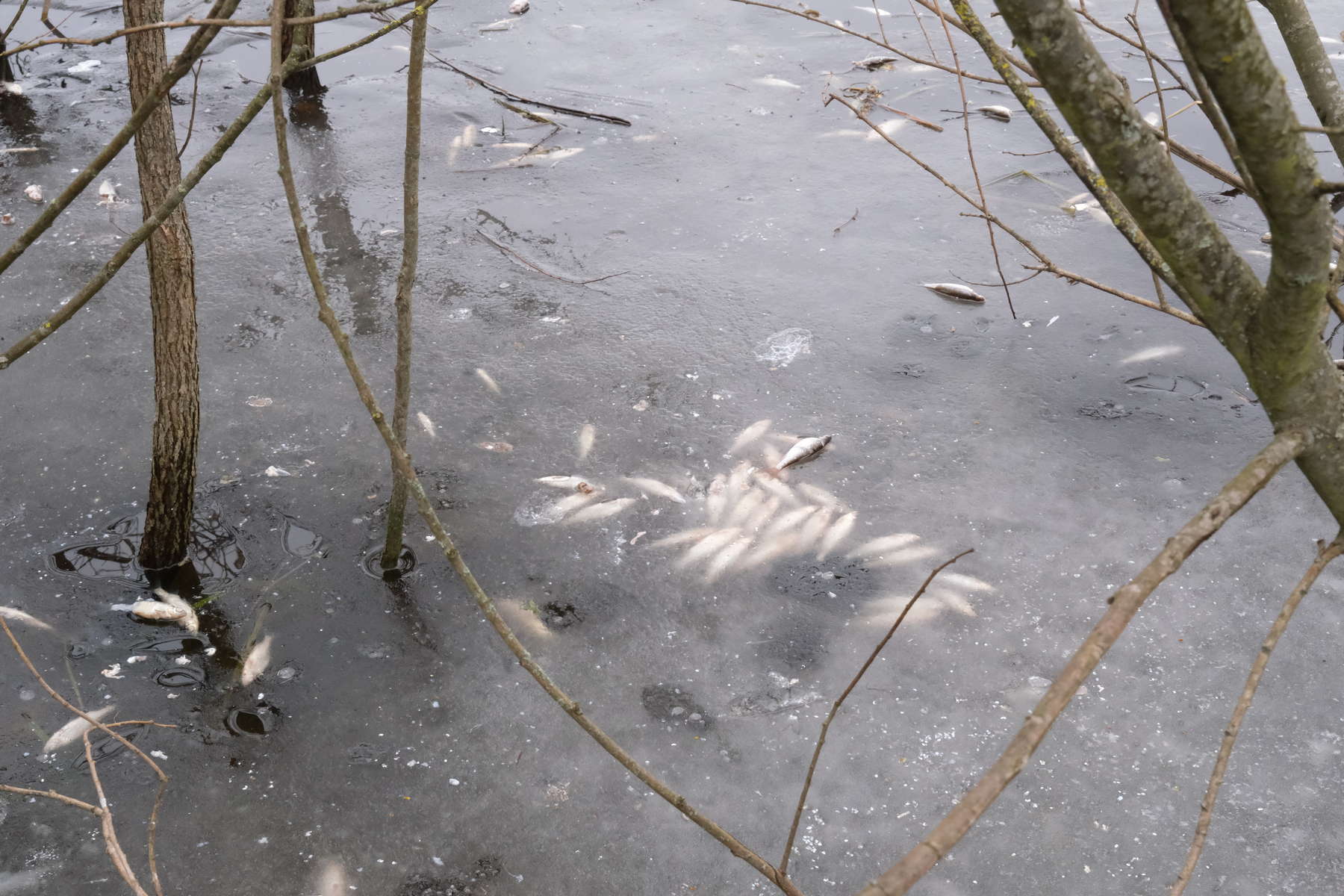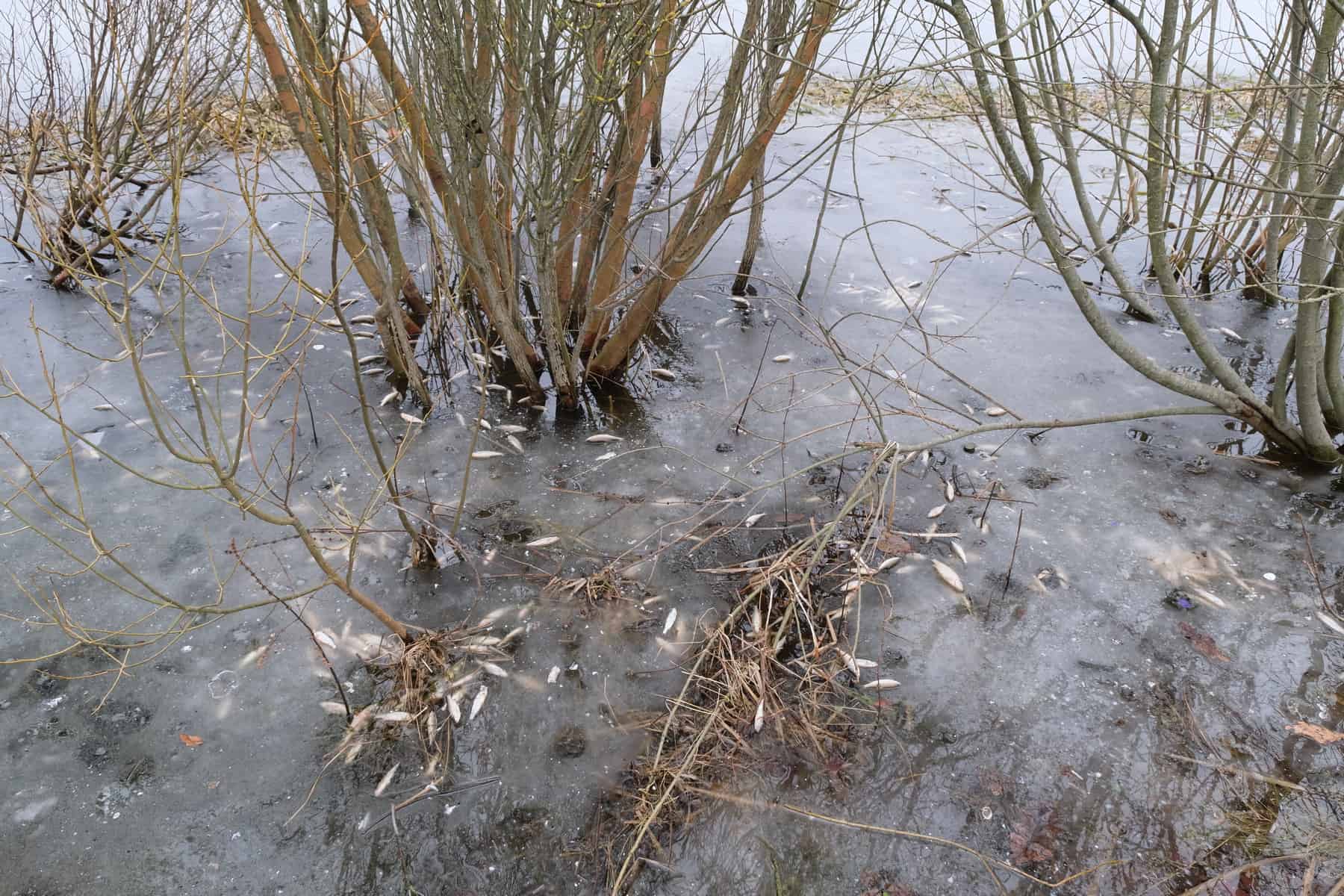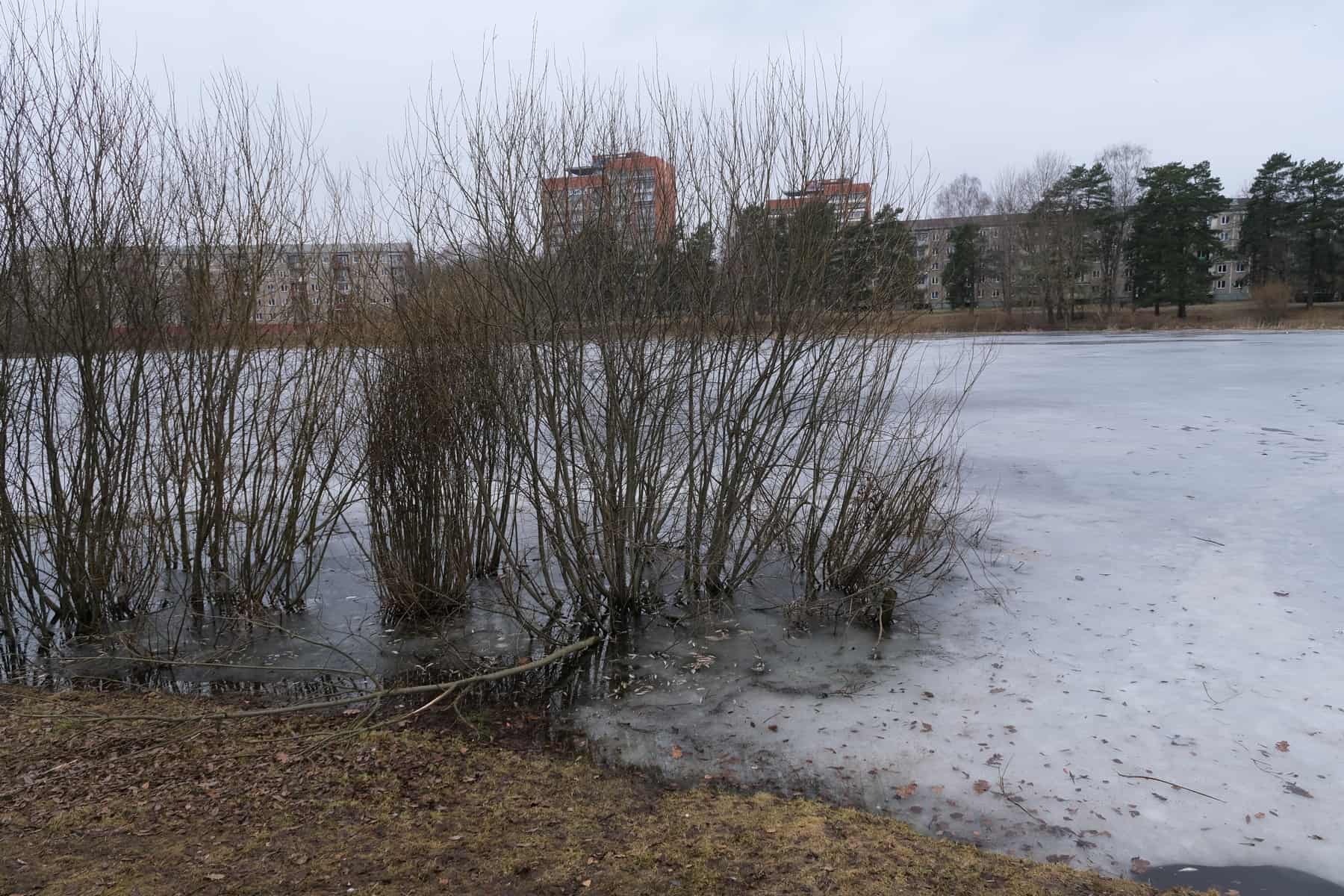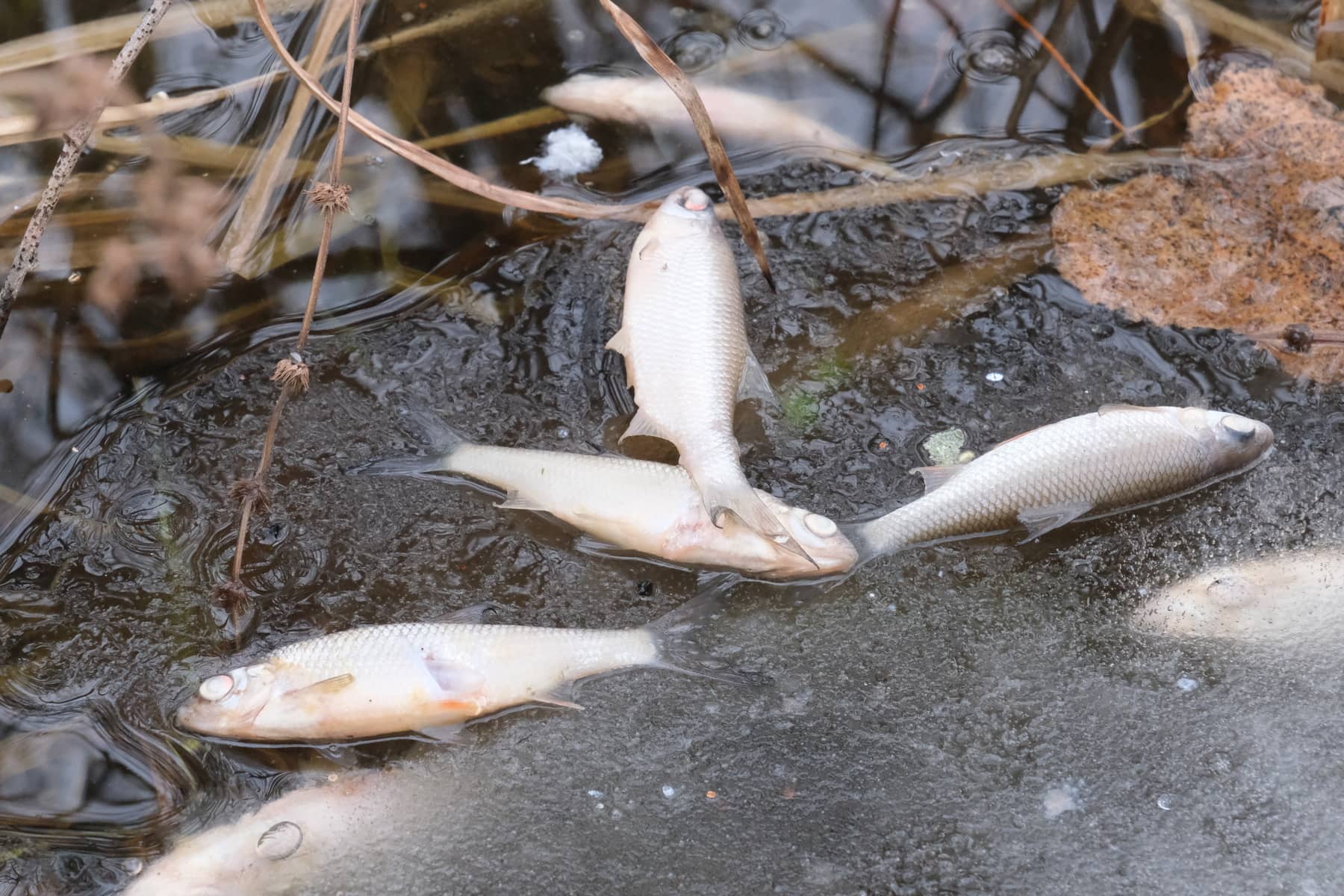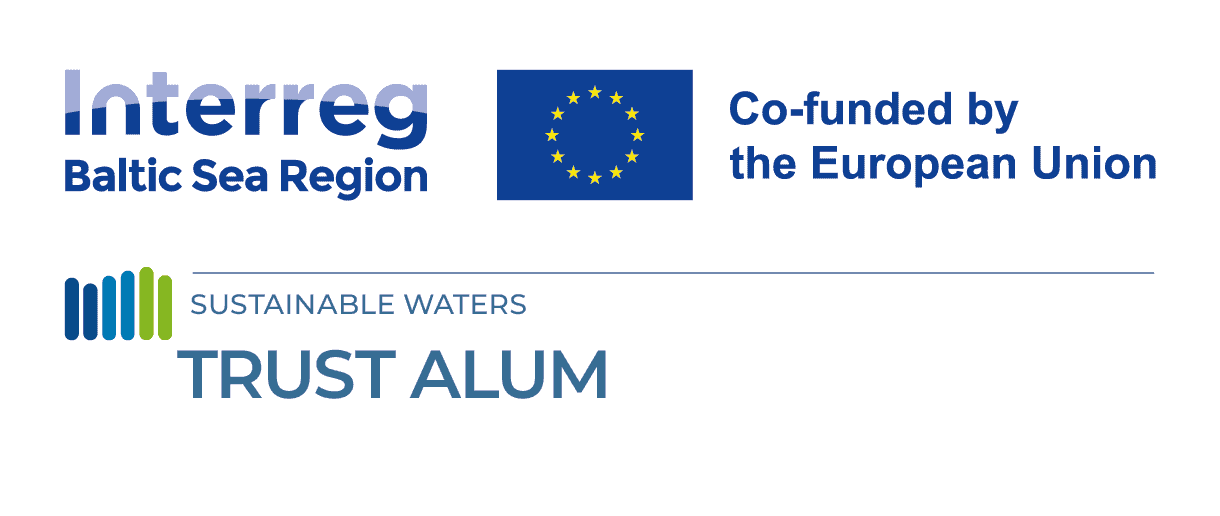
Mass fish death in the pilot lake call for urgent water treatment
07 March 2024
“The lake is full of dead fish!” – such a disturbing message our project team received at the end of February from one of our local stakeholders. This local, who has lived near Lake Velnezers for decades, shared that he had never witnessed such a significant die-off before. The next day our team went to check our pilot site.
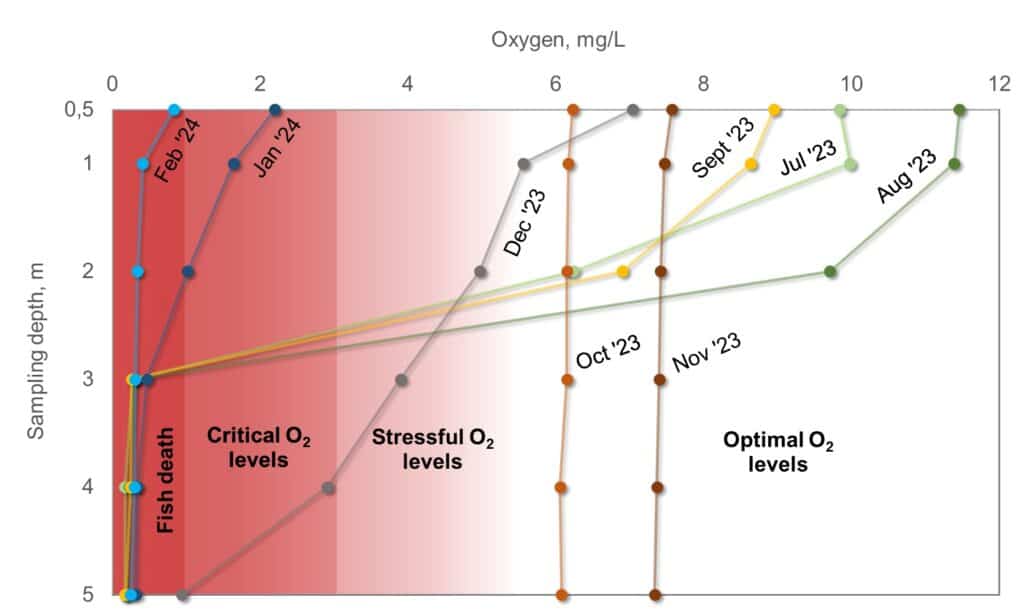
Oxygen monitoring in Lake Velnezers reveals unfavorable conditions for fish communities during summer (low oxygen below 2 meters depth) and winter (oxygen levels become critical across the whole lake).
Upon our arrival, it was clear that the eastern shore of Velnezers Lake was littered with dead fish, many of which were frozen into the ice. Nicholas Heredia, a project expert from the Latvian Institute of Aquatic Ecology, drew our attention that dead fishes are grouped in clusters. He suggested that it could be due to specific wind conditions and vegetation along the shore, which initially prevented ice formation, drawing fish to the area for oxygen. He also noticed that the dead fishes were about the same size and age. However, he was quick to reassure that not all fish species were affected equally, highlighting that survival rates could vary based on several other factors.
Our monitoring over the first eight months has revealed Velnezers’ poor status and oxygen scarcity. The lake’s highly eutrophic state, compounded by an extended ice cover period, poses a severe threat to its fish population. Data from January and February show alarmingly low oxygen levels across the lake with consequences we all could easily observe. During warmer months, while lower depths of the lake remained oxygen-depleted, fish could survive in the upper layers where oxygen levels were sufficient.
As we approach May, the TRUST ALUM team is gearing up for a significant milestone: the first application of ALUM treatment in the Baltics. This activity is designed to bind excess phosphorus in the sediments, mitigating eutrophication and oxygen depletion. In preparation, our team is engaged in data analysis, PAC dose modeling, logistics and planning of information campaign to keep the public informed and involved.
The planned treatment activities and massive fish deaths have attracted society’s attention. You may find more information in Latvian in the external links below.






